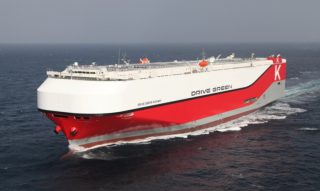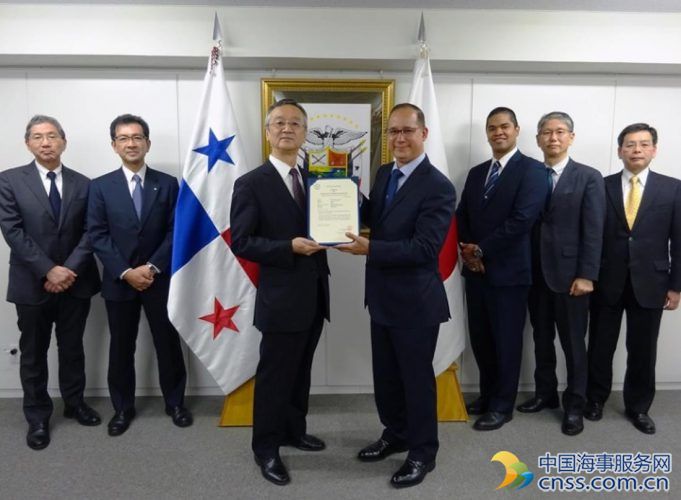Japanese SOx Scrubber System Gets First Certification

After a year of testing a newly-developed Hybrid SOx Scrubber System for removing sulfur oxides (SOx) from the exhaust gas emitted by marine diesel engines, the system received its first certificate of compliance from the Republic of Panama, the country where the test ship is registered.
Conducted aboard the 2016-built vehicles carrier Drive Green Highway, the test operations, undertaken by Kawasaki Kisen Kaisha (K Line), Mitsubishi Heavy Industries (MHI) and Mitsubishi Kakoki Kaisha (MKK), verified that the system’s effectiveness in curbing emissions of air pollutants complies with international regulations.
K Line said that the test unit of the Hybrid SOx Scrubber System is the first installation of a system jointly developed by MHI and MKK specifically for marine applications.
The system had been undergoing verification testing ever since the 7,500 CEU ship was delivered in February 2016 and the test results mark the first time Nippon Kaiji Kyokai (Class NK) has satisfied international guidelines for exhaust gas cleaning systems 2, according to K Line.
In response, Panama approved that the vessel is equipped with an exhaust gas cleaning system whose effectiveness has been substantiated, and on January 11 a certificate of compliance, the first awarded to a Panamanian ship as Japanese SOx Scrubber System, was conferred at the Embassy of Panama in Tokyo.

The certificate comes on the back of a decision reached at IMO’s Marine Environment Protection Committee (MEPC) in October 2016 to tighten regulations on the sulfur content of marine fuels in all waters of the world except designated emission control areas (ECA), from the current 3.5% limit to less than 0.5% starting January 1, 2020.
The Hybrid SOx Scrubber System is the first commercialized system in Japan to comply with the more stringent SOx emission regulations that took effect, starting with ECAs, in 2015.
Going forward, K Line said that it will, together with MHI and MKK, continue to pursue diverse environmental protection initiatives, including the development of measures to prevent air pollution, in order to help curb increasingly heavy environmental loads on a global scale.
HEADLINES
- Do shipping markets want Biden or Trump for the win?
- All 18 crew safe after fire on Japanese-owned tanker off Singapore
- Singapore launching $44m co-investment initiative for maritime tech start-ups
- Cosco debuts Global Shipping Industry Chain Cooperation Initiative
- US warns of more shipping sanctions
- China continues seaport consolidation as Dalian offer goes unconditional